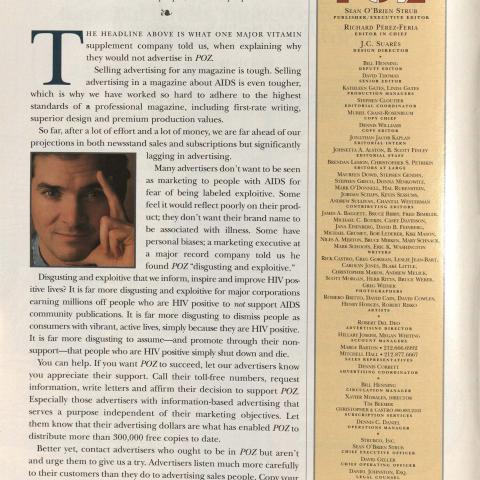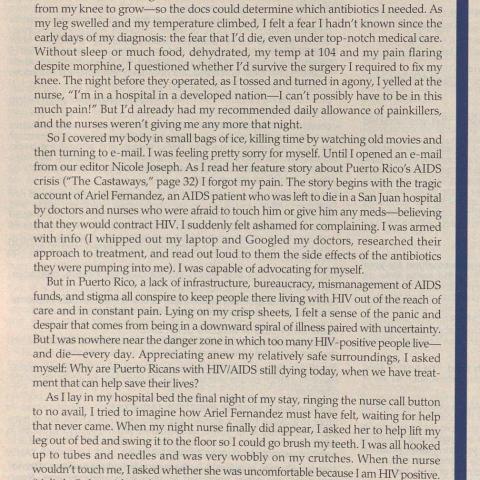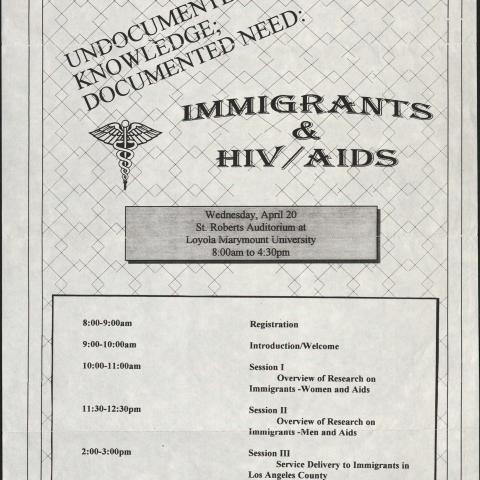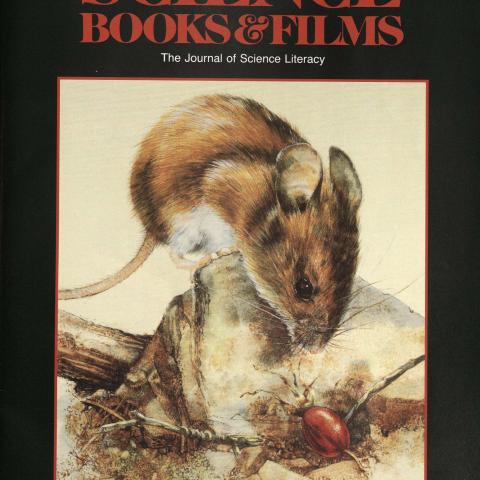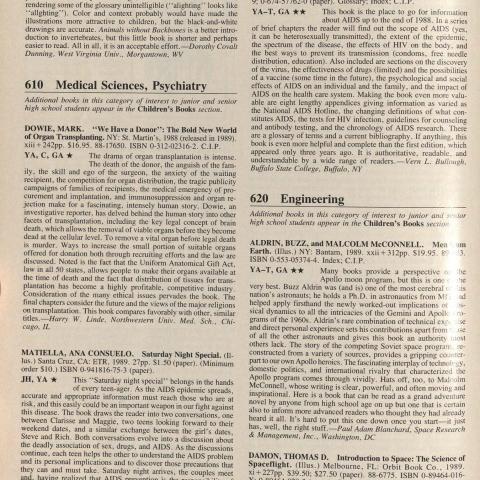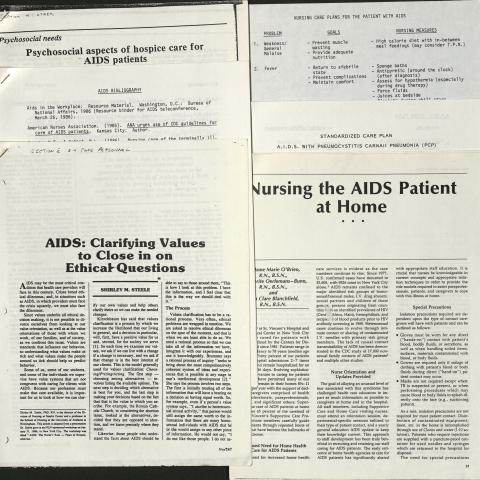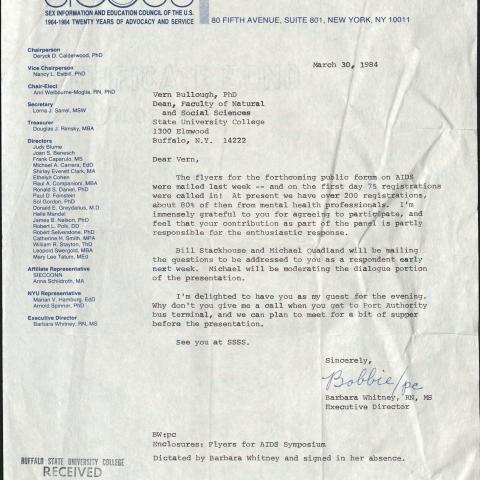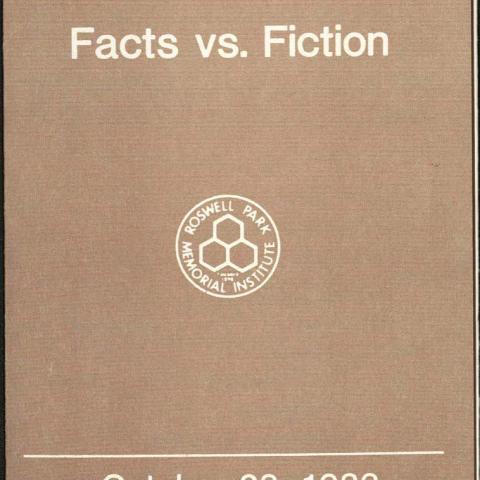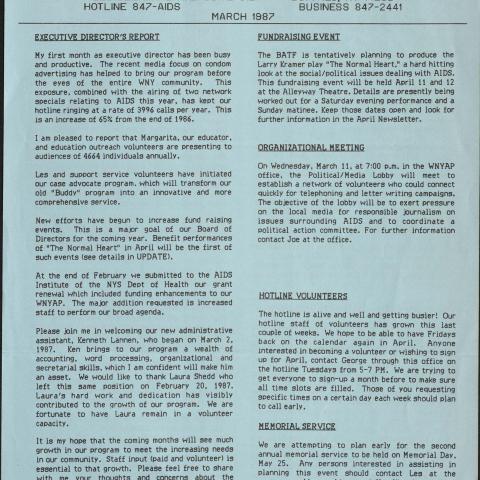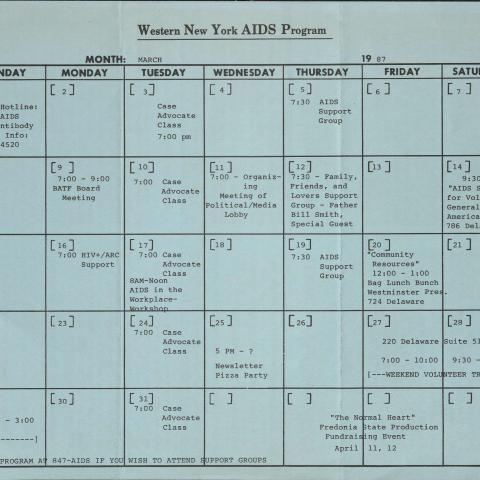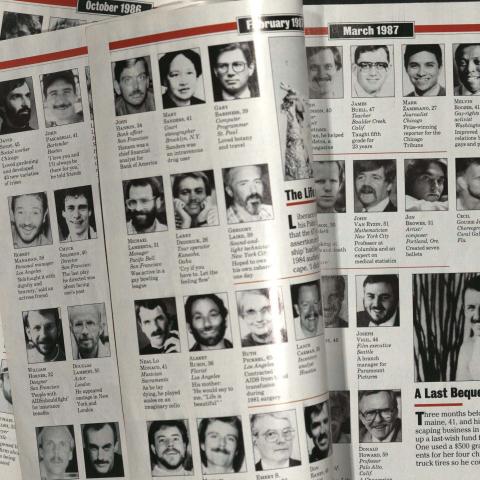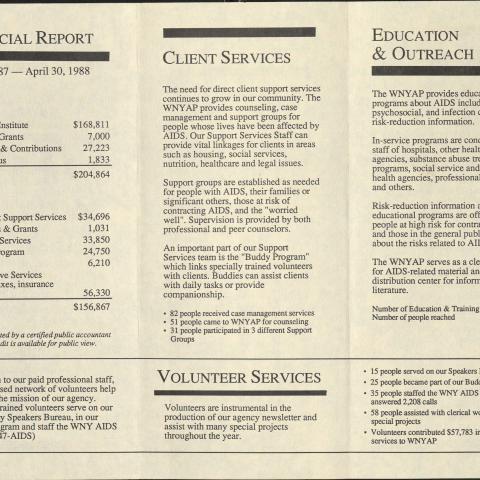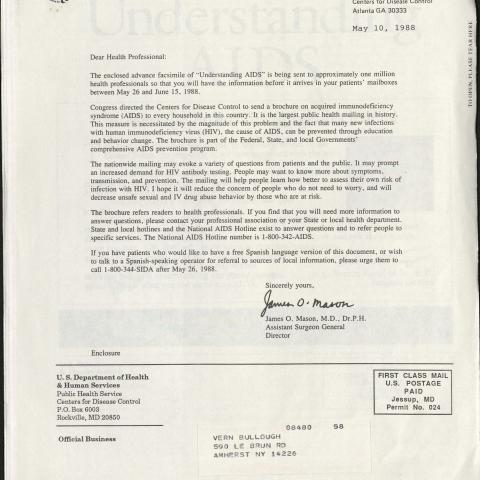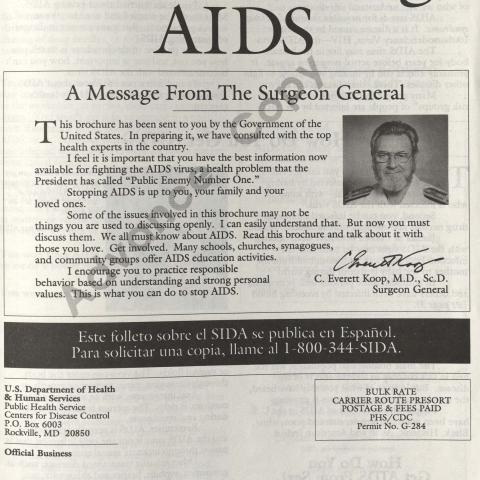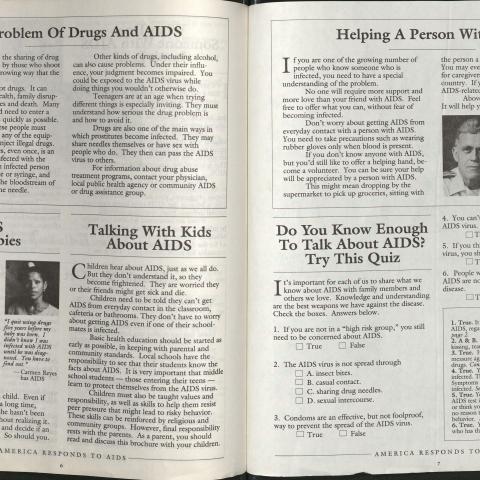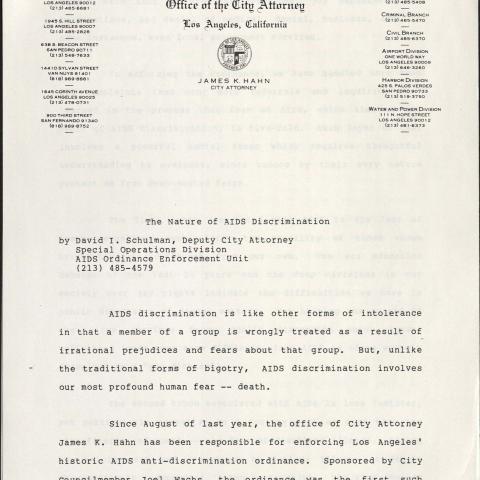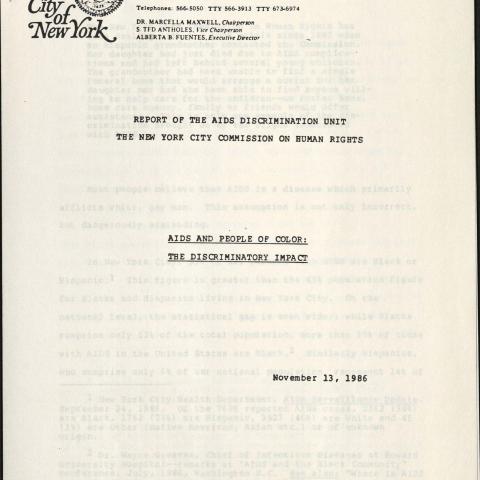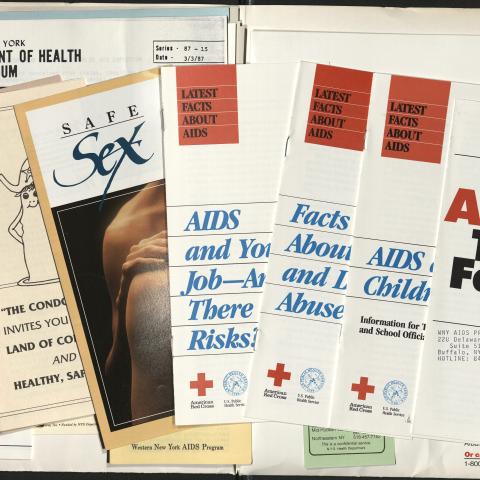HIV & AIDS, the early years in the United States
by Julieta Garcia, Archivist, International Guitar Research Archive - February 06, 2024
In 2024, we continue to navigate an ever-changing pandemic which is especially difficult and dangerous for those who are immunocompromised. There are still a lot of unknowns and fear circulating about Covid 19. Similarly, in 1981 the first case of HIV was reported in the United States. HIV (human immunodeficiency virus), which left untreated can lead to AIDS (acquired immunodeficiency syndrome), was still a mysterious virus at the time where friends, family, and loved ones were lost in a short time span. There were so many unknowns. Medical professionals wondered what the virus was and how it was affecting people, especially those between the age group of 20-40 where it was most prominent at the time. Stigmas and discrimination against people suffering from HIV and AIDS circulated quickly.
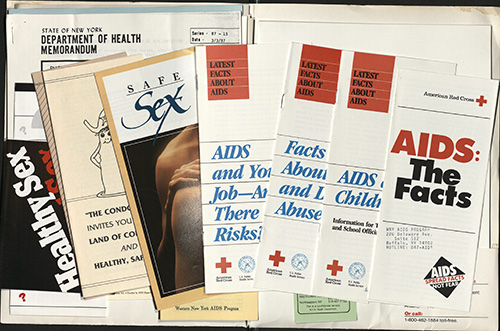 Special Collections & Archives holds many documents and resources on the topic. With these materials we are able to able to get a glimpse into the early years of the HIV/AIDS epidemic in the United States and its territories, when the world was trying to wrap its head around this unknown virus taking the lives of so many people, rapidly teaching and challenging medical professionals, and causing so much discrimination.
Special Collections & Archives holds many documents and resources on the topic. With these materials we are able to able to get a glimpse into the early years of the HIV/AIDS epidemic in the United States and its territories, when the world was trying to wrap its head around this unknown virus taking the lives of so many people, rapidly teaching and challenging medical professionals, and causing so much discrimination.
POZ, a slang term for “positive”, is a magazine that focuses on HIV and AIDS and publishes personal accounts, poetry, medical research, and more on the topic. Early on the magazine experienced discrimination from advertisers. The Editor’s note in volume 1 issue 4 in 1994 wrote about advertisers who did not want to associate themselves with people who were “unwell”, and called out dismissive and exploitive behavior by advertising companies against AIDS community publications. 14 years later, in the 2008 issue, POZ editors were still focused on advocating for its readers. In this issue the Editor wrote about their personal experience with HIV and compared their experience to those struggling with HIV and AIDS in Puerto Rico, where proper care was still not available even after all of the medical advances.
The Mary S. Pardo collection has one item relating to HIV/AIDS. Mary Pardo is a Professor and Department Chair of Chicano Studies at CSUN. There is a conference flyer in her collection for a conference held at Loyola Marymount University in Los Angeles hosted by their Department of Chicano Studies, the Coalition for Humane Immigrant Rights Los Angeles, and the Universitywide AIDS Research Office. The conference was titled "Immigrants & HIV/AIDS". The year of the conference is unknown, but there is a schedule included which highlights the topics and intentions of the one-day conference.
Then, the Vern L. Bullough Papers hold a large amount of materials that touch on HIV/AIDS. The collection houses Bullough’s research and writing in the field of sexology. In the Bullough papers there is an array of materials that document his research, his teachings, and the information he gathered on the topics of HIV and AIDS. Vern Bullough was a prominent researcher on the topic of sex, so many colleagues requested his input on HIV and AIDS. Bullough was also asked to review articles and books relating to AIDS, which were published in related journals. Many of the documents here are from campuses, faculty, and medical professionals who were interested in sharing their research, informing the public with statistics, reducing the stigmas of testing, promoting healthy and safe sex, and reporting on what to expect when testing positive.
One highlight of the collection is an article titled “Nursing Perspectives on AIDS”. The article talks about what nurses learned from working with AIDS patients including psychological aspects and care plans for patients. Many of the materials noted here are from New York, such as the Western New York AIDS Program (WNYAP) and other information packets. WNYAP in particular held information sessions, offered social services, and memorial services to their community.
Lastly, HIV and AIDS had a ripple effect on the world, not only were people losing their loved ones to HIV/AIDS, individuals who tested positive were also being discriminated against, especially those in the LGBTQ+ community and communities of color. Legal documents, information packets, research notes, meeting minutes, and magazines, such as POZ, expressed anger and frustration at discriminatory laws, the general public’s fear, and misinformation. Although the number of HIV/AIDS cases grow at a slower rate now, the 1980s and 1990s were a time of fear for many, especially when information was not as easily accessible as it is today.
Image Gallery
Post tagged as: urban archives, special collections, archives, publications, ephemera, united states
Read more Peek in the Stacks blog entries